Maybe you’ve mastered meal prep Mondays, and perhaps you even really look forward to eating leftovers. Good on you! This is key when you’re trying to eat healthy and make a habit of it.
The next step would be storage. Not only does proper storage in the fridge keep your food from spoiling too soon, but it’s a factor in health.
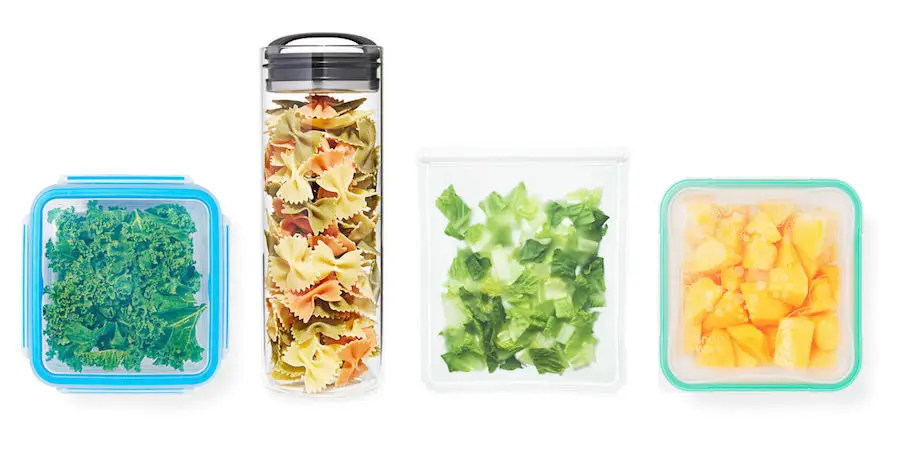
Many tupperware and food storage containers have some sneaky qualities to them that can take away from our healthy meals. If you’re going to put the work into batch cooking and packing away your bounty all tidy and organized, you may as well do yourself justice and invest in some proper food storage containers.
Here, we’ll discuss what makes a healthy, non-toxic choice and recommend some of our favorite brands for all your tupperware needs.
Speaking of meal prep, check these out:
Our 7-Day Make Ahead Meal Plan Volume 1 and Volume 2
The problem with plastic
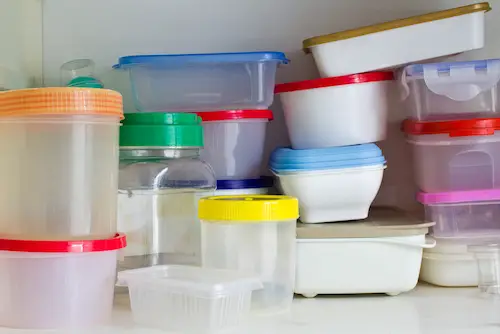
If we can encourage one positive change in your food storage mechanisms, let it be that switching from plastic to glass is a big service to your body and your food. Let’s chat about why.
- Heat. Heat and plastic do not mix. It’s good to let your food cool before storing it in general, but it’s especially important with plastic. Plus, glass storage containers can often be easily transferred to the oven or microwave without presenting an issue. Beyond safety, this makes heating up leftovers really easy.
- Chemical leaching. Along with heat which can increase the chemical output, chemical leaching is bound to happen with plastic tupperware. You can read more about the specifics in the next section, but most plastic containers will leach over time with repeated use. Naturally, we want tupperware that can withstand the test of time. Speaking of time…
- Safe plastic is relatively new. Tupperware claims to have been producing BPA-free products since 2016 – not so long ago! If you’ve got some ancient tupperware sitting around, it’s doing you more harm than it is good. Besides, it’ll be nice to do some revamping in your kitchen stock.
BPA-free: what does it mean?
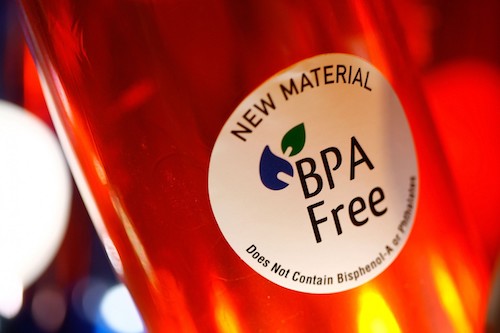
While this label is promising, and you’re going to come across it over and over while sourcing new kitchen storage containers, it’s good to get some clarifiers for what labels truly mean something.
The same goes for sourcing meat, in particular. You’ll see labels that seem favorable, but what is the difference between free-range and pasture-raised? It’s good to know what these regulations entail, and the dirty details.
BPA, otherwise known as bisphenol-A mimics estrogens, thus being thought to cause some serious health issues over time. With our constant exposure to BPA from plastic tupperware, water bottles and aluminium cans, it really does add up.
Unfortunately, many BPA-free labels are misleading. In some research, even products with the label contained estrogen-like properties. As we mention above, it’s important to remember that BPA-free can be a good indicator of a safe product, but it can’t always be trusted to stay that way with extended use of the product.
The risks of BPA
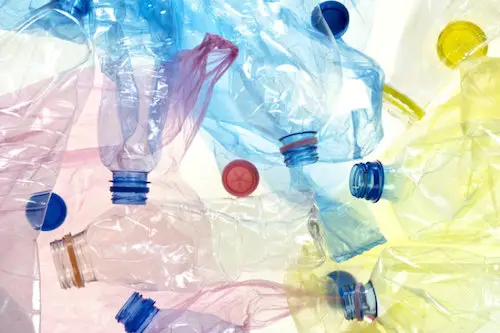
Some risks include asthma, cancer, infertility and genital deformity – yikes! To elaborate on the latter, its sexual side effects are undesirable to say the least – especially considering things like egg and sperm count can be reduced even with minuscule amounts of BPA in the body over time.
It’s best not to take your chances. Considering how much our hormones determine our overall health and wellbeing, exposure to synthetic estrogens is best eliminated as thoroughly as possible.
This study links BPA to depression in children, even with BPA exposure in the womb, proving that its effects can be detrimental before birth. If that doesn’t change you mind, we don’t know what will.
Even more convincing is the idea that the way the ill effects of BPA “reprogram” our cells can impact our children and our grandchildren. The consequences can be passed on from generation to generation, so not only will replacing your plastic do you a favor, but it will keep your family strong for years to come.
Other consequences of its hormonal disruption within the endocrine system include early puberty in growing children, hyperactivity (particularly in young people), increased risk of obesity and a compromised immune system.
Safe bets: our product recommendations
Now that we’ve scared you out of plastic containers, let’s talk about how you can upgrade. These are investments, and they will serve you time and time again. Ideally, your food storage solution is also a ‘buy it for life’ deal.
We’re talking sturdy, unbreakable, truly BPA-free options that can take a little heat.
Glasslock containers
This is the number one storage solution. You can opt for a 3-piece set in a variety of sizes (by ounce capacity) or you can choose a variety pack with 9 containers if you have a lot of gear to replace.
They’re airtight and leakproof, contain zero BPA, and they will easily transfer over to the oven or the microwave. They’re also dishwasher-safe, so clean-up is super simple.
It’s made of soda ash and limestone, which are great ingredients to look for when sourcing safe tupperaware. Finally, Glasslock is stain and odor-proof which gives it a good upperhand on plastics which retain strong food scents and color.
These are FDA-approved safe, which is a good indicator of a reliable choice; many brand’s packaging are not! Bonus: it can withstand a pretty far drop, so clumsy chefs – these are safe in your hands.
ECOlunchbox bento box
If you’re packing lunch, this bento box can’t be beat. It’s tidily organized in a stacking system that manages to hold about 1.5 cups of food! It allows equal space for all your dishes, so you can mix and match leftovers with ease.
They’re reminiscent of ‘tiffins’ in India, where they’ve been used for a long time. Catching up with the times is in style with this stainless steel lunchbox; it’s non-toxic and plastic-free.
Stainless is always a good choice for cookware and food storage devices. Purchase the ECOlunchbox Trio Bento Lunchbox.
We hope you learnt something new about safer, healthier food storage devices. If you have a favorite brand or tupperware, share your recommendations with us below in the comments!
Music, mountains, dogs, travel, food and friends.

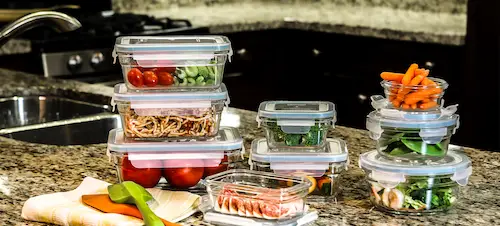
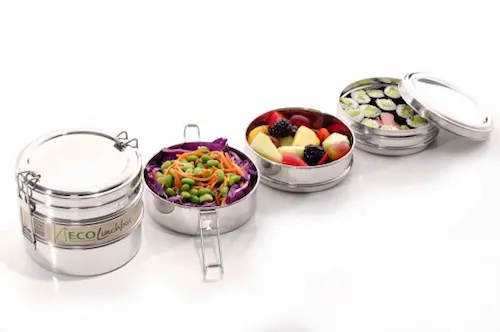
I like the tip that you gave to look for a plastic container that will help prevent leaking chemicals into your food. My wife and I need to get some plastic containers to put our leftovers in, and I want to make sure that we choose the right ones. I will be sure to look for a food-safe container, so there will be no chemical leakage.